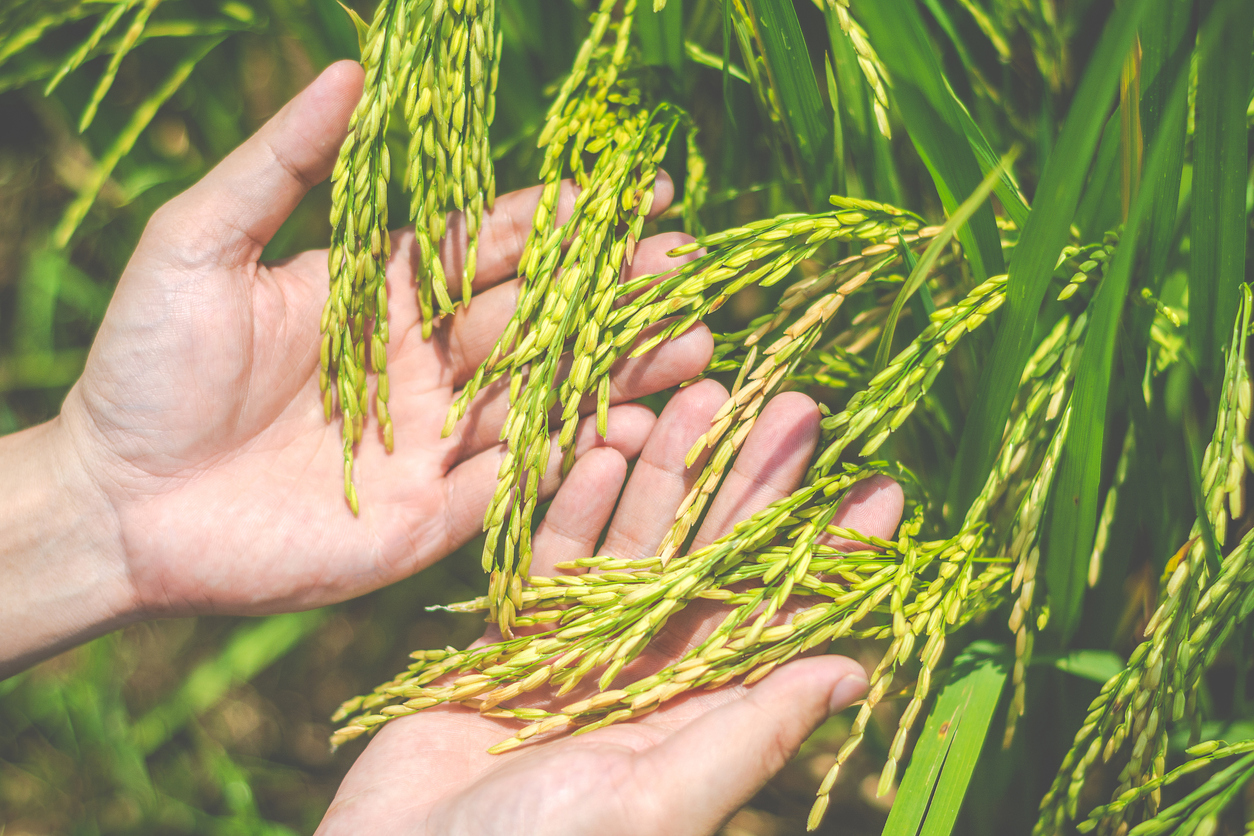
Multiplex Genome Editing Improves Wild Rice Agronomic Traits
November 26, 2025| |
Scientists from the Chinese Academy of Agricultural Sciences used multiplex genome editing of seven genes to rapidly enhance wild rice (Oryza rufipogon) traits. The results are published in the Journal of Integrative Plant Biology.
Genome editing tools, such as the CRISPR-Cas9, are accelerating the improvement of existing crops and the rapid domestication of wild plants, which is crucial for enhancing global food security and promoting sustainable, low-input agriculture. A key challenge is the complexity of directly domesticating wild rice species with multiple sets of chromosomes. Thus, the researchers focused on diploid wild rice as the starting material for the study. This simplified approach included a multi-gene co-editing strategy targeting several specific domestication genes to quickly combine desired agronomic traits into wild rice, offering new sources for innovative rice varieties.
Results showed that the septuple mutants had simultaneous significant improvements in key traits such as erect plant architecture, shortened awns, yellowish hull color, reduced seed shattering, and white-colored pericarps. The findings provide experimental proof that co-editing multiple wild rice genes generates targeted improvements in agronomic traits, offering novel genetic resources for rice breeding.
Read the open-access article in the Journal of Integrative Plant Biology.
| |
You might also like:
- Pocket K No. 54: Plant Breeding Innovation: CRISPR-Cas9
- India Releases Two Genome-Edited Rice Varieties
- Quarter Century of Golden Rice: Innovation and Impact in the Past 25 Years
Biotech Updates is a weekly newsletter of ISAAA, a not-for-profit organization. It is distributed for free to over 22,000 subscribers worldwide to inform them about the key developments in biosciences, especially in biotechnology. Your support will help us in our mission to feed the world with knowledge. You can help by donating as little as $10.
-
See more articles:
-
Gene Editing Supplement (November 26, 2025)
-
Research and Tools
- K-State Researchers Tackle Gluten Allergenicity in Wheat Using CRISPR-Cas9
- Gene Editing Reduces Browning in Lychee
- Multiplex Genome Editing Improves Wild Rice Agronomic Traits
- Gene Editing Elucidates a Vital Defense Switch in Rice
-
Read the latest: - Biotech Updates (January 21, 2026)
- Gene Editing Supplement (January 28, 2026)
- Gene Drive Supplement (February 22, 2023)
-
Subscribe to BU: - Share
- Tweet

